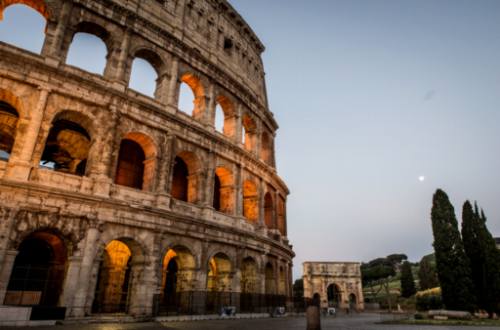The foundation and early history of Rome is shrouded in myth and legend, making it a fascinating subject for historians and archaeologists alike. The kingdom of Rome, with its seven legendary kings, played a crucial role in shaping the destiny of the city and laying the groundwork for the powerful Roman Republic that would follow. The Etruscan influence on early Rome is another intriguing aspect of this period, highlighting the complex interactions between different cultures in ancient Italy. The fall of the Roman Kingdom marked the beginning of a new era for Rome, leading to significant political and social changes that would ultimately transform the city into a force to be reckoned with in the ancient world.

The Seven Kings of Rome
Following the establishment of Rome, the city was ruled by seven kings, each contributing to the growth and development of the early Roman Kingdom.
The first king of Rome, Romulus, was believed to have reigned for 37 years and was known for establishing the city's political and social institutions. He was followed by Numa Pompilius, a wise and peaceful ruler who introduced religious reforms and established many of Rome's religious institutions.
The third king, Tullus Hostilius, was known for his militaristic ambitions and his expansion of Rome's territory through conquest. He was succeeded by Ancus Marcius, who focused on strengthening Rome's infrastructure and expanding the city's boundaries.
Following Ancus Marcius, Tarquinius Priscus, an Etruscan nobleman, became the fifth king of Rome. He introduced significant cultural and architectural advancements to the city and was followed by Servius Tullius, who implemented social and political reforms, including the organization of citizens into classes based on wealth.
The last king of Rome, Tarquinius Superbus, was remembered for his tyranny and cruelty, which ultimately led to his overthrow and the establishment of the Roman Republic in 509 BC. The reign of the seven kings of Rome marked a significant period in the city's history, laying the foundation for the Republic and the eventual rise of the Roman Empire.
The Etruscan Influence on Early Rome
Their influence on early Rome was profound, shaping many aspects of Roman culture and society.
One of the most notable contributions of the Etruscans to early Rome was in the field of architecture. The Etruscans were master builders and their techniques and styles greatly influenced Roman architecture. The Romans adopted many Etruscan architectural elements such as the use of arches, vaults, and the construction of grand temples and public buildings.
In addition to architecture, the Etruscans also influenced Roman religion and rituals. The Romans adopted many Etruscan religious practices and deities, integrating them into their own pantheon of gods. The Etruscans also introduced the Romans to the practice of augury, the art of interpreting omens from the flight of birds, which became an important part of Roman religious ceremonies.
The Etruscans also had a significant impact on Roman society and politics. The Etruscans introduced the Romans to the concept of kingship and governing institutions, which later evolved into the Roman Republic. The Romans also adopted the Etruscan alphabet and writing system, which became the basis for the Latin language.
Overall, the Etruscans played a crucial role in shaping early Rome and laying the foundations for the great Roman Empire that would follow. Their influence can be seen in many aspects of Roman culture, society, and politics, and their legacy continues to resonate throughout the history of Rome.
The Fall of the Roman Kingdom
The Roman people had grown tired of the tyrannical rule of the Tarquin dynasty, which had become increasingly oppressive and corrupt. The final straw came when the king's son, Sextus Tarquinius, raped Lucretia, a noblewoman, leading to a popular revolt against the monarchy.
This revolt culminated in the establishment of the Roman Republic, a new form of government where power was divided among elected officials and the senators. The fall of the Roman Kingdom marked the beginning of a new era for Rome, one characterized by democracy, accountability, and the rule of law.
The transition from monarchy to republic was a turning point in Roman history, setting the stage for the expansion and dominance of Rome in the Mediterranean world. The fall of the Roman Kingdom symbolized the end of an era of unchecked royal power and the birth of a new political order based on the principles of civic virtue and popular sovereignty.
